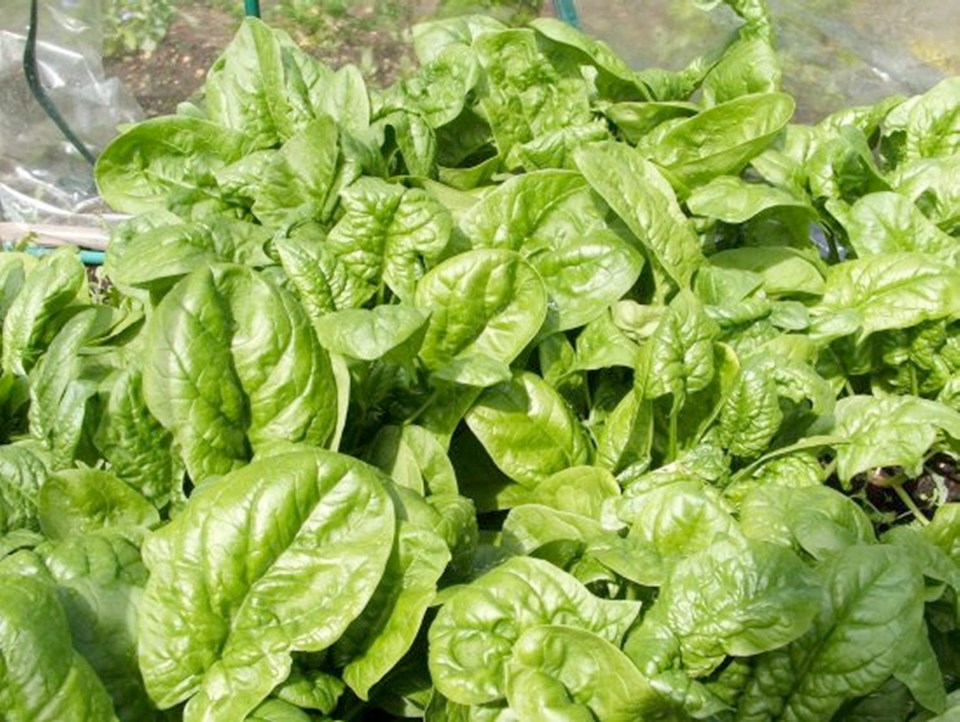Dear Helen: For the past three years I’ve had problems getting spinach and beet seeds to germinate. What could be wrong with my soil?
D.D.
If it’s spinach and beets you are having issues with, the soil probably just needs more liming. When I started out in my current garden, I could not get these seeds to germinate well. Seeds that did germinate produced only the most pitiful of plants. It was only when I added a scattering of Dolopril, a fast-acting, granulated form of dolomite lime, as part of preparing the soil that I was able to grow really good beets and lush spinach.
Beets and spinach need a very slightly acidic to neutral soil to grow well. The question you have asked arrives often in my mail, because most soils on Vancouver Island are more than slightly acidic. The fall and winter rains that we usually have leach alkaline elements such as calcium and magnesium out of the soil.
Dear Helen: What are the reddish-brown, capsule-like objects I’m finding in the soil? One end is rounded, the other bluntly pointed with a few crosswise ridges.
B.C.
You are finding the pupae of climbing cutworms, one of two cutworm types found commonly in home gardens. Both kinds are plump, dirty-looking caterpillars that feed at night, curl into a C when disturbed, and are the larvae of night-flying moths.
Familiar to most gardeners are the soil-dwelling kinds that feed at or close to the soil surface by severing the stems of seedlings and small plants at the soil line.
The other type is climbing cutworm, caterpillars that crawl up plants at night and chew ragged holes in leaves. The adult female moths lay eggs in late summer on leaves, branches, fence posts and at other sites. Tiny caterpillars hatch from the eggs and move on wind currents to gardens where they feed through the fall and during periods of warm winter weather before pupating in the soil in spring.
The reddish-brown, bullet-shaped capsules you have found are those pupae. Within a pupa, an adult moth forms to emerge in June and fly about until egg laying time in August and September.
Destroy any cutworm pupae or larvae you find. Turning the soil over in the spring before planting helps to expose larvae and pupae to birds and other predators.
Damage from climbing cutworms, especially from large yellow underwing moth larvae, which are large and particularly destructive, has been most pronounced in leafy winter vegetables. At the first sign of eaten foliage, use a flashlight to check the plants as it falls dark at night. Pick off any caterpillars you find.
Garden Events
View Royal meeting. The View Royal Garden Club will meet this evening at 7:30 in Wheeley Hall, 500 Admirals Rd. in Esquimalt. Ann Nightingale, birder and naturalist, will speak about Backyard Birds of Victoria. Visitors, new members welcome.
Flower and garden show. The Mill Bay Garden Club will host its 72nd Annual Flower and Garden Show on Saturday, 9 a.m. to 2 p.m. in the Cobble Hill Hall, 3550 Watson Ave. in Cobble Hill. View competitive entries in flower, fruit, and vegetable categories and enjoy the show’s many features: plant sales and other garden vendors, an over 100-item silent auction, a strawberry tea, and master gardeners to solve your garden problems.
Alpine open house and plant sale. Eswyn’s Alpine & Rock Garden Caretakers and Alpine Gardeners of Central Vancouver Island are hosting Eswyn’s Alpine & Rock Garden 10th Anniversary Open House and Plant Sale on Saturday, 10 a.m. to 1 p.m. at Nanoose Place, 2925 Northwest Bay Rd. in Nanoose. The garden features rare alpines rescued from the garden of Eswyn Lister. There will be displays of the garden’s history and information on growing alpines and seed saving. The sale of inspirational alpine planters and individual plants will raise funds for the garden’s upkeep. Coffee and tea will be available. Information at 250-248-3507 and 250-248-9568.
HCP workshops. The following workshops are offered by the Horticultural Centre of the Pacific, 505 Quayle Rd. in Saanich. Register at 250-479-6162. Details at hcp.ca.
• The Art of Bonsai — Advanced Class, Saturday, June 1, 9 a.m. to 12 p.m. Learn how to trim your tree and understand the yearly rhythms of bonsai care. HCP members $40, others $45.
• Herbal Medicine Making, Saturday, June 1, 10 a.m. to 12 p.m. Learn how to make medicinal infusions, oils, ointments and vinegars from fresh wild-gathered ad garden herbs. Take a creation home. Members $55, others $65.



